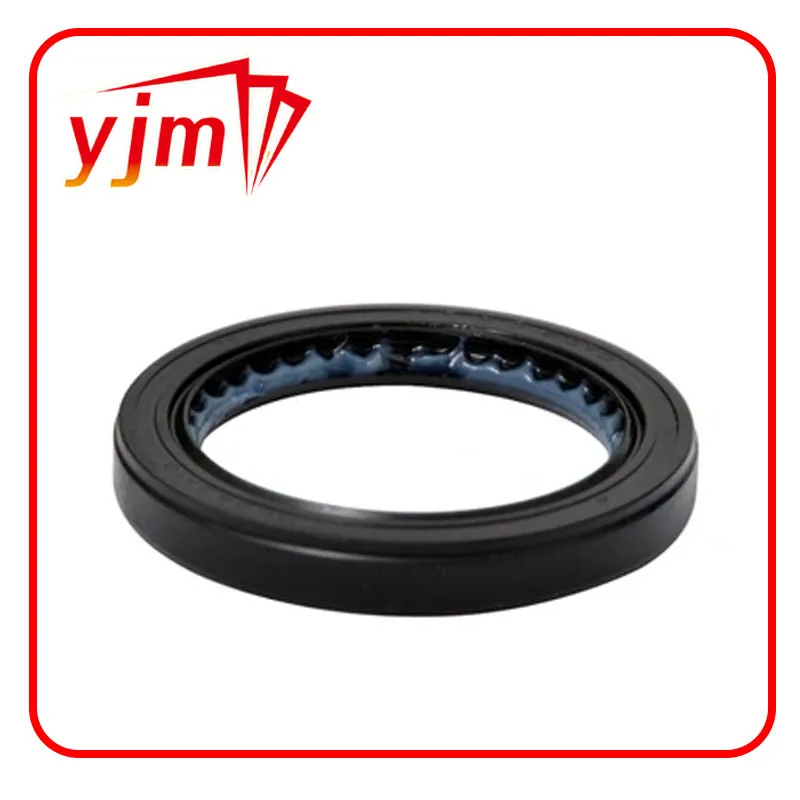oil housing gasket
The Importance of Oil Housing Gaskets in Automotive Applications
In the realm of automotive engineering, the efficiency and longevity of engines are paramount to the success of any vehicle. One critical component often overlooked by many is the oil housing gasket. This seemingly inconspicuous part plays a crucial role in maintaining the integrity of the engine's lubrication system. In this article, we will explore the functionality, types, and significance of oil housing gaskets within the automotive industry.
What is an Oil Housing Gasket?
An oil housing gasket is a sealing component that is used to prevent oil leaks between the engine block and various oil-related components such as the oil pump, oil filter, and oil cooler. Its primary function is to create a tight seal that withstands both the pressures of the oil circulating through the engine and the heat generated during operation. Made from materials like rubber, cork, or silicone, oil housing gaskets are designed to withstand extreme temperatures and conditions present in an automotive engine environment.
The Functionality of Oil Housing Gaskets
Oil housing gaskets serve multiple purposes that are essential for efficient engine operation
1. Leak Prevention The most obvious function of an oil housing gasket is to prevent oil leakage. An effective gasket ensures that the oil stays contained within the designated areas, thus avoiding loss of lubrication, which can lead to severe engine damage.
2. Pressure Maintenance During engine operation, oil is circulated under high pressure. Gaskets must be capable of maintaining this pressure without allowing any fluid to escape. A compromised gasket can lead to diminished oil pressure, negatively impacting engine performance and longevity.
3. Temperature Regulation An adequately sealed engine compartment aids in maintaining optimal temperatures. Gaskets help to reduce the chances of oil overheat by preventing external contaminants from entering the oil circuit, which could alter its viscosity and performance.
Types of Oil Housing Gaskets
oil housing gasket

Oil housing gaskets come in various shapes and configurations, designed to fit specific applications. Some of the most common types include
1. Flat Gaskets These are the simplest form of gaskets and are used in configurations where the surfaces that the gasket seals are flat and parallel. Flat gaskets are commonly made from rubber or fiber materials.
2. O-ring Gaskets O-rings are circular rubber gaskets that provide a more effective seal for round openings. They are often used in pressure applications due to their resilience and ability to create a tight seal.
3. Cork Gaskets Cork is a traditional material used for gaskets because of its ability to compress and conform to irregular surfaces, providing a reliable seal.
4. Multi-Layer Steel (MLS) Gaskets These gaskets consist of multiple layers of steel and are used in high-performance applications. They are designed to withstand extreme pressures and temperatures, making them ideal for modern engines.
The Significance of Oil Housing Gaskets
The importance of oil housing gaskets cannot be overstated. A failed gasket leads to oil leaks, which can result in significant engine repairs and downtime. When oil leaks out, it not only reduces the lubrication available to engine components but can also lead to overheating, increased friction, and ultimately engine failure. Moreover, oil leaks pose environmental concerns, as they contribute to pollution and may result in costly cleanup efforts.
For vehicle owners, regular maintenance checks that include inspecting oil housing gaskets can be a crucial preventive measure. Signs of a failing gasket may include oil spots under the vehicle or a noticeable drop in oil levels. Addressing these issues promptly can save vehicle owners both time and money in the long run.
Conclusion
In conclusion, oil housing gaskets are vital components in automotive engines that ensure proper functioning and safety. Their role in preventing leaks, maintaining pressure, and regulating temperature is fundamental to the overall health of the engine. Vehicle manufacturers and owners alike should recognize the importance of these gaskets and prioritize their maintenance to ensure optimal engine performance. Proper attention to oil housing gaskets not only enhances engine longevity but also contributes positively to the environment by reducing oil spills and leaks. Whether you are a mechanic, vehicle owner, or simply an automotive enthusiast, understanding the significance of oil housing gaskets is essential for the effective management of engine health.
-
The Ultimate Guide to Car Repair Kits: Tools and Essentials Every Driver Should Own
News Aug.01,2025
-
The Complete Guide to Oil Pan Gaskets: Sealing Engine Leaks the Right Way
News Aug.01,2025
-
Preventing Oil Leaks: A Complete Guide to Oil Pan Gaskets and Drain Seals
News Aug.01,2025
-
Everything You Need to Know About Oil Pan Gaskets and Drain Plug Seals
News Aug.01,2025
-
Essential for Car Owners: How to Use a Car Repair Kit to Deal with Minor Breakdown
News Aug.01,2025
-
Comprehensive Guide to Engine Oil Sump Gaskets and Related Seals
News Aug.01,2025
-
The Ultimate Guide to Boat Propeller Bearings and Trailer Wheel Bearings
News Jul.31,2025
Products categories















